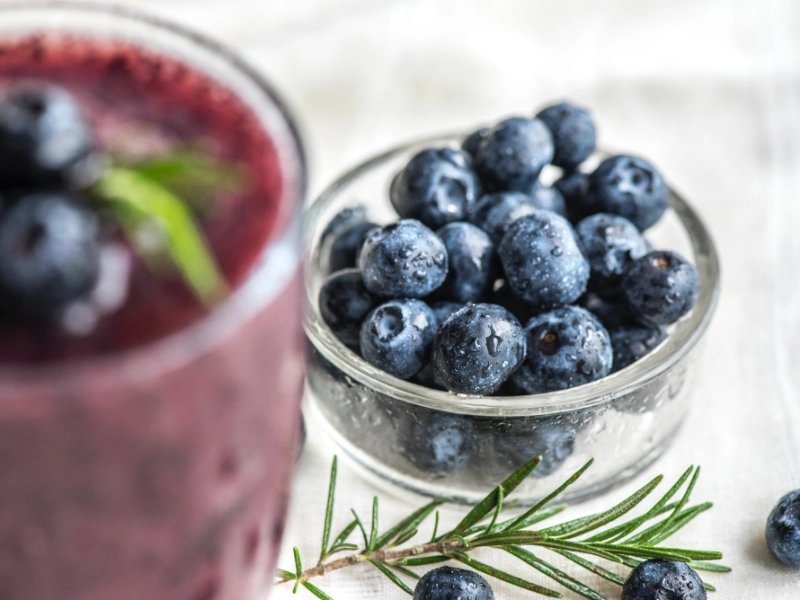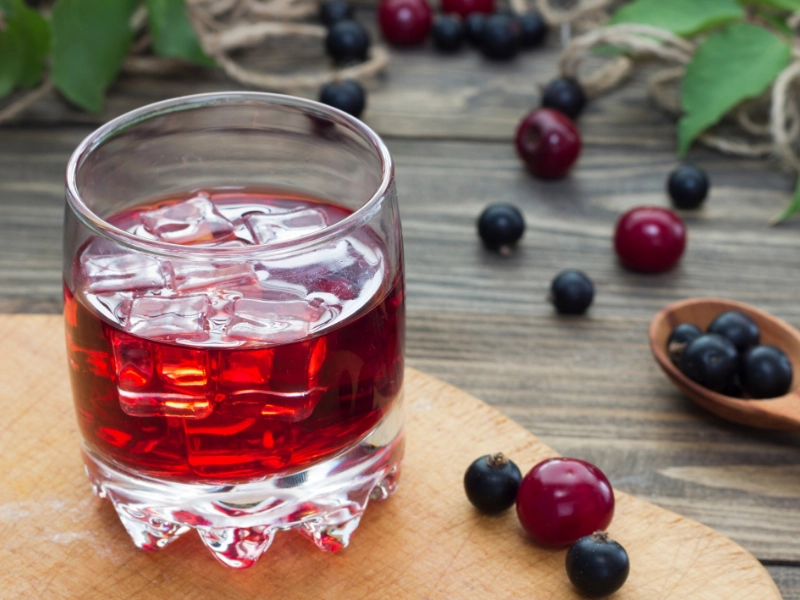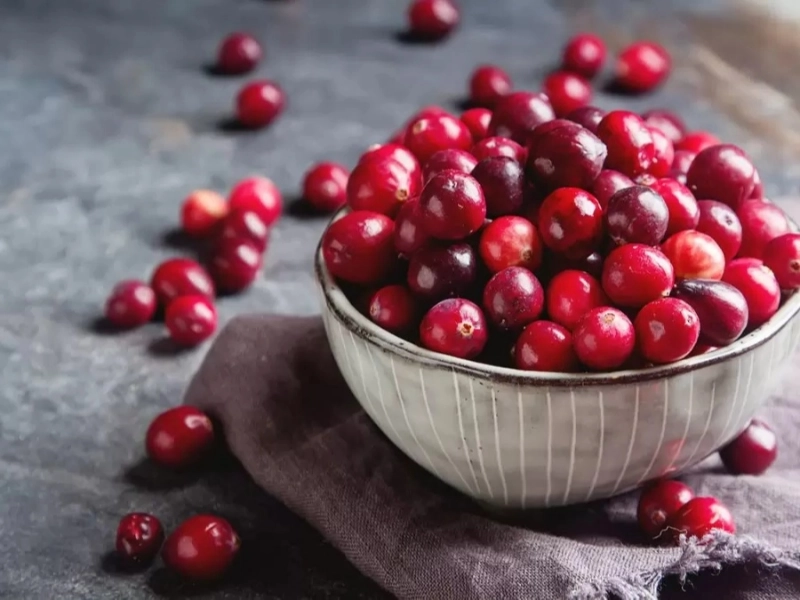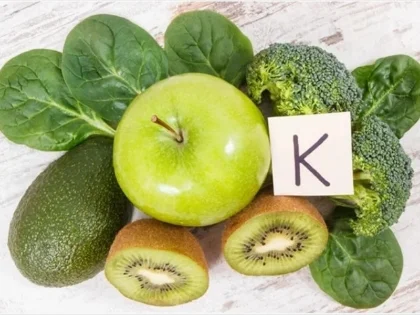The Unexpected Benefits Of Berries For Urinary Tract Health
Berries are abundant in nutrients and potent antioxidants, making them nature's candy. To manage and prevent chronic illnesses, they can be included in a diet that reduces inflammation in order to manage and prevent chronic illnesses. It's possible that you've heard that cranberries and their juice can guard against UTIs, or urinary tract infections. In susceptible women, cranberries and their juice can reduce UTIs.
Cranberries

Berries
 Anthocyanins, which are abundant in blueberries, aid in preventing urinary tract infections. Eating blueberries and cranberries increased bacterial resistance against germs that cause urinary tract infections, according to a study published in the Journal of Antimicrobial Chemotherapy.
Additionally, they have soluble fibre, which encircles bile and aids in its excretion from the body. This lowers heart disease-causing cholesterol levels and prevents bile from being recycled back into the bloodstream.
Antioxidants found in berries, especially blueberries, aid in the fight against chronic inflammation, which is a significant cause of most illnesses. Additionally, a 2021 review published in Clinical Nutrition ESPEN states that they reduce systolic blood pressure and promote healthy vascular function.
Because berries contain anthocyanins, research suggests that eating them can improve mood, memory, and cognitive function. In fact, consuming blueberries has been associated with a slower age-related loss in cognitive performance in population-based research. An additional advantage is that blueberries and other berries contain folate, which lowers the risk of cancer-causing mutations and aids in DNA synthesis and repair.
Anthocyanins, which are abundant in blueberries, aid in preventing urinary tract infections. Eating blueberries and cranberries increased bacterial resistance against germs that cause urinary tract infections, according to a study published in the Journal of Antimicrobial Chemotherapy.
Additionally, they have soluble fibre, which encircles bile and aids in its excretion from the body. This lowers heart disease-causing cholesterol levels and prevents bile from being recycled back into the bloodstream.
Antioxidants found in berries, especially blueberries, aid in the fight against chronic inflammation, which is a significant cause of most illnesses. Additionally, a 2021 review published in Clinical Nutrition ESPEN states that they reduce systolic blood pressure and promote healthy vascular function.
Because berries contain anthocyanins, research suggests that eating them can improve mood, memory, and cognitive function. In fact, consuming blueberries has been associated with a slower age-related loss in cognitive performance in population-based research. An additional advantage is that blueberries and other berries contain folate, which lowers the risk of cancer-causing mutations and aids in DNA synthesis and repair.
Aronia Fruits
 The attractive shrub known as aronia berry (Aronia melanocarpa) can grow in a variety of soil types, including wetlands. It produces black berries that ripen throughout the summer and early autumn, when they are plucked, as well as white spring flowers. The fruit is used to make jams, drinks, and health supplements.
Aronia berry extract has been demonstrated in laboratory experiments to lower free radicals and shield animal cells from harm. It also strengthened immunity and stopped cancer cell formation. There are claims that it is the most antioxidant-rich berry. It has significant concentrations of proanthocyanins, anthocyanins, and polyphenols.
According to clinical studies, consuming aronia berry extract reduces cholesterol and blood pressure while also assisting in the prevention of diabetes and heart disease. It might also enhance blood flow and stop clots from forming. It has also been discovered to interfere with a protein's ability to encourage tumor growth.
The attractive shrub known as aronia berry (Aronia melanocarpa) can grow in a variety of soil types, including wetlands. It produces black berries that ripen throughout the summer and early autumn, when they are plucked, as well as white spring flowers. The fruit is used to make jams, drinks, and health supplements.
Aronia berry extract has been demonstrated in laboratory experiments to lower free radicals and shield animal cells from harm. It also strengthened immunity and stopped cancer cell formation. There are claims that it is the most antioxidant-rich berry. It has significant concentrations of proanthocyanins, anthocyanins, and polyphenols.
According to clinical studies, consuming aronia berry extract reduces cholesterol and blood pressure while also assisting in the prevention of diabetes and heart disease. It might also enhance blood flow and stop clots from forming. It has also been discovered to interfere with a protein's ability to encourage tumor growth.
Berries from Hawthorne
 The hawthorn (Crataegus monogyna), sometimes referred to as maythorn, whitethorn or quickthorn, blooms in the spring and yields vivid red berries in the autumn. Antioxidants abound in the berries and leaves.
Hawthorn has traditionally been used to fortify the heart. Flavonoids found in berries improve cardiac enzyme action and raise heart cell metabolism. They maintain normal blood pressure levels by improving circulation and increasing coronary artery blood flow. They have also been demonstrated to improve the health of the heart muscle and lessen angina symptoms.
Hawthorn has been shown in laboratory experiments to have anti-inflammatory properties. Its high polyphenol content is thought to be connected to this advantage. However, further studies involving human participants are necessary to verify this. Furthermore, a study published in 2021 discovered that hawthorn extract has anticancer properties and may be used to treat prostate cancer cells. Hawthorn may interfere with some drugs, such as blood thinners; therefore, before using it, see a healthcare provider.
The hawthorn (Crataegus monogyna), sometimes referred to as maythorn, whitethorn or quickthorn, blooms in the spring and yields vivid red berries in the autumn. Antioxidants abound in the berries and leaves.
Hawthorn has traditionally been used to fortify the heart. Flavonoids found in berries improve cardiac enzyme action and raise heart cell metabolism. They maintain normal blood pressure levels by improving circulation and increasing coronary artery blood flow. They have also been demonstrated to improve the health of the heart muscle and lessen angina symptoms.
Hawthorn has been shown in laboratory experiments to have anti-inflammatory properties. Its high polyphenol content is thought to be connected to this advantage. However, further studies involving human participants are necessary to verify this. Furthermore, a study published in 2021 discovered that hawthorn extract has anticancer properties and may be used to treat prostate cancer cells. Hawthorn may interfere with some drugs, such as blood thinners; therefore, before using it, see a healthcare provider.








